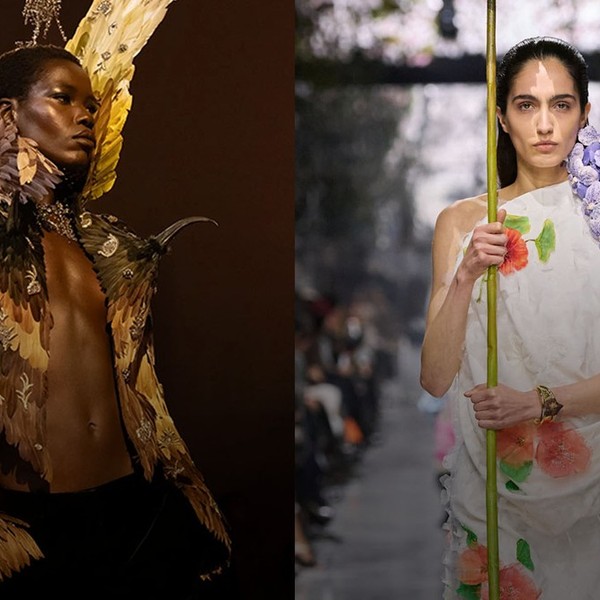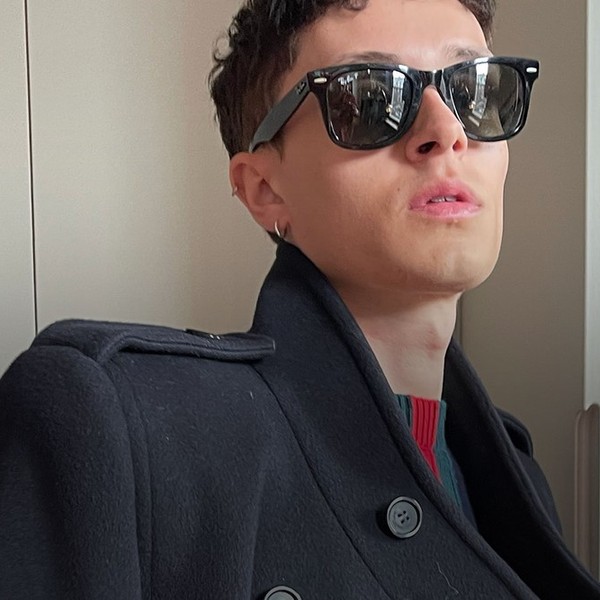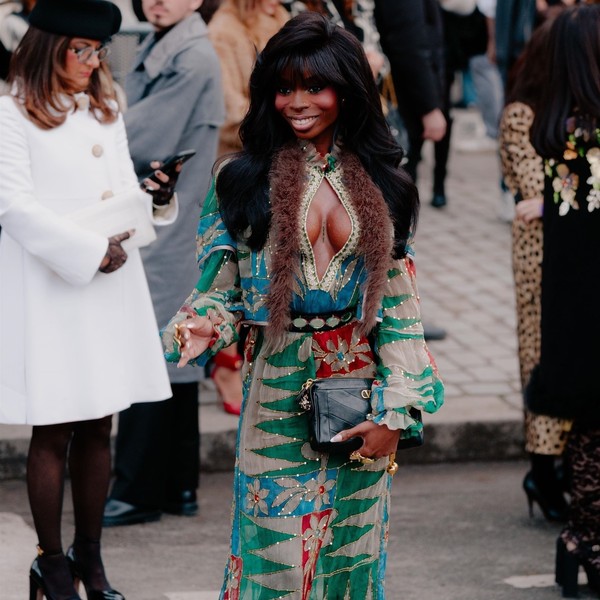Thuy Is the Bay Area’s Princess
The R&B singer speaks to Coveteur about becoming the first Vietnamese American female artist to play Coachella, her upcoming projects, and returning home. |

R&B singer and songwriter Thủy has a warmth about her. Standing on the stage at 88Rising’s Head in the Clouds festival, she points out people from the crowd—she likes your dance moves, she thinks you and your friends are adorable. In the trailer after her set, she greets everyone with a cheerful ease and wants to know about them as much as they want to know about her. She says it’s probably a Bay Area thing.
“When I moved to LA, I felt like everybody I met was from the Bay,” she says. “It was like a magnetic thing where we just found each other… it's a certain energy that I can't explain—a laid-back, chill aura.”
Thủy, 32, moved to Los Angeles in 2015 to pursue music full-time, and years later, her hard work has finally begun to bear fruit. Her first EP, i hope u see this, was released in 2021, and her second, girls like me don’t cry, followed in 2022. The latter catapulted her into viral fame last year after her lead single “girls like me don’t cry” went viral on TikTok—over 8.9 million videos have been posted using the audio. Since then, she’s gone on to open for Ella Mai, completed a sold-out tour in Australia, and in April, became the first Vietnamese American female artist to perform at Coachella.

Thuy performing at Head in the Cloud New York 2024
Lindsey Blane
There are a lot of people excited to ride for Thủy. During her set, groups of girls squeeze around me, pushing to get closer to her as they chatter with each other. Below videos of her performances on YouTube, they congregate in the comments: “Yess thủy with the accent mark,” writes one. “Midsize girlie representation,” adds another. Last year, in the car, as I drove from Palo Alto to Union City, the radio jockey introduced her song—“the Bay Area’s princess,” they described her as the sound quickly melted into her recognizable fluttering soundscapes.
“It's, like, such a catch-22 because I'm so happy to be in this position, but also that comes with a lot of responsibility,” she says. “I never realized the responsibility until recently. I feel like because I've broken through some barriers, there've been people asking me about what that means to me and representation and all of that. So it gets me thinking a little bit more about what I'm doing and how important it is.”
Raised in Newark, California, an enclave surrounded by the city of Fremont, Thủy said she grew up surrounded by Asian Americans. The city of Fremont is 61 percent Asian, and Newark is 14 percent Vietnamese. “I'm very proud of where I come from,” she says. “In the Bay Area, you don't think about the fact that you're Asian or anything. It was always a melting pot of all different nationalities, cultures, traditions, values, all of that, but everybody respected each other.”
The San Francisco Bay Area, one of the country’s largest hubs of Asian American communities, has often been at the epicenter of the diaspora’s modern culture. The first Chinatown was established in San Francisco, and the roots of the AAPI social justice movement began here in the late 1960s, with the student-led movements in San Francisco. The term “Asian American” was coined by student organizers at UC Berkeley in 1968. Culturally, it’s also in close quarters with enclaves of Black and Latine communities, which means that throughout history, much of the Asian cultural product coming out of the Bay resulted from inter-community exchange. Filipino American disc jockeys like Richard “Q-Bert” Quitevis and “Mixmaster” Mike Schwartz spearheaded the burgeoning world of hip-hop scratch crews, putting both Asian DJs and the Bay Area on the map for the first time. This continues to be a region of natural cross-pollination, birthing a new area of pan-Asian art and turning out stars like mxmtoon, Saweetie, and Guapdad 4000. It’s also the home of Sean Miyashiro, the founder of 88Rising and Head in the Clouds festival, where Thủy performed in early May to an amphitheater of fans.
“It wasn't until I went to college in Santa Barbara, where it was predominantly white, [that] I felt like, ‘Damn, I don't belong,’” Thủy says. “I wanted to join a sorority, but I didn't have the money to do it. I just wanted to be accepted, even though I knew deep down I was never going to be accepted there. It wasn't until I moved back to the Bay Area after I graduated that I was like, ‘Oh wow, I took this for granted.’”
Home has influenced everything from her sound—she cites Oakland-born Kehlani as one of her contemporary inspirations—to the people she surrounds herself with. “My team mostly consists of people from the Bay Area,” she says. “I think we just understand each other.”
As more Asian American stars begin to enter the spotlight, there can be an expectation they’ll become an ambassador to a community—one that grows stronger with an artist’s visibility. The weight of being “first” is something that Thủy says she wrangles with now more than ever before. “Great, I’m the first, but there needs to be more, right?” she says. “The music part is easy. I’m up there, I’m singing, I’m making music, it’s fun and therapeutic. But I’m seeing a lot more how hard it is to break through as an Asian American artist—especially Southeast Asian.”
The internet has played a huge role in her ascent, without a doubt—not just in her success, but in her creation process, too. “When YouTube was just starting, I was so excited because you could click a song, and then on the sidebar, [there were all] the related videos,” she says. “I just remember going down a rabbit hole of R&B music videos and clicking everything.”
Prior to social media, she worked several jobs to support her career. Just before she began making money off her art, she was working a full-time job doing customer service for Spin, a scooter company. “There were times where I was like, ‘I'm not making enough to fund my real life and my music career—maybe I need to go and do Postmates,’” she says. “Social media was the reason I sold out tours and got to go on these crazy festivals, release music, and honestly be able to live off music.”
Thủy’s music is also wrapped in contemporary decoration, whether it be her eschewing of capitalization in her song titles or her lyricism that speaks to themes around modern-day youth. In titles like “girls like me don’t cry,” “insecurities,” and “universe”—a soft, smitten ballad she wrote about her dog—her pen speaks to familiar feelings like finding out your situationship ghosted you or trying to understand the idea of self-love. But the music is made timeless through the whimsical production and her vocal dexterity.
Home is a throughline to Thủy, who calls being from the Bay “a personality trait at this point.” It’s all love when she comes back to town, where her parents insist she stays in her childhood home and feed her breakfast, lunch, and dinner, plus two or three snacks. Where she can listen to her aunties, uncles, and cousins talking, arguing, playing cards, singing karaoke. It’s a place she can reset before she goes off into the great unknown, taking with her the sounds of all the people championing her as she breaks yet another barrier.
“I'm working on a project,” she says. “I don't want to say ‘album’ because it's so much pressure, but it damn near is an album. Shit, I don't know. Maybe I'll do cooking videos and stuff.”
Want more stories like this?
Kitty Ca$h’s New Go-To Songs Are Her Own
Dog Days at Westminster
Ashleah Gonzales Is Writing It Down




